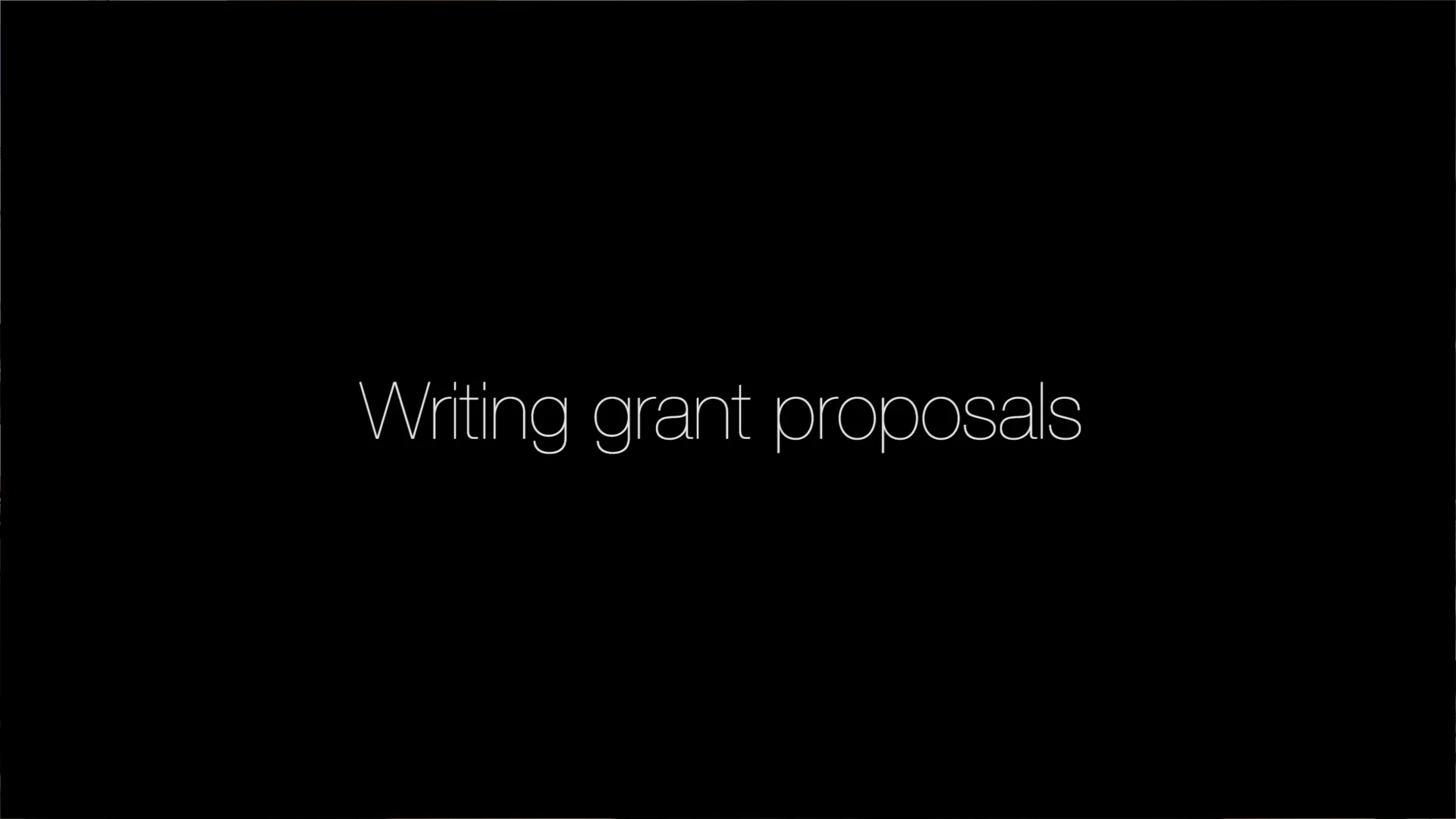TRANSCRIPT
“One thing that I have to do every five years is write a grant application or grant application renewal and that's actually quite good because it makes you take stock. You know, it's quite easy to say, “Oh yeah, we're doing this, and we can do this and this and this and this,” and that makes you think maybe there are some more interesting things we could be doing. And that means you do have to sit back and think to yourself what are some of the interesting questions that you're not going to answer if you just keep on doing what you're doing. You need to kind of step aside, step back a bit, and think maybe we could go off in this direction a bit as well. And I think that's fun –I like to have different things on the boil.”
-Margaret Scott Robinson, Ph.D.
Professor of Molecular Cell Biology, University of Cambridge
“Writing grants can be really instructive because you have to stop and you have to think about the long-term. You have to think about where you are going and ask, "Ok, what’s a really interesting question?" And quite often I'll go back and look at the grants I've been funded and look at the main aims and say, "Ok, these are the things I said I was going to do – where are we now? Have we got there? Are we going towards these things? Are these still valid questions to be asking?" So it's painful but it's quite useful.”
-Brian Hendrich, Ph.D.
Principle Investigator, Department of Biochemistry, University of Cambridge
“The grant itself, you're writing usually just about the questions you're going to address. And everyone grumbles about this, but I think grant writing actually forces you to write down what you're going to do, and how much money you need to do it, and think through carefully the experiments you're going to do. It’s quite a useful exercise. Then to have that critiqued by your peers rather than just sit in your own room spending someone else's money without anyone really looking over your shoulder – so I think that's actually quite useful. It gets depressing when the grant funding rates are so low that you go through all that effort and then you don't get the money and if that happens repeatedly then it's a bit soul destroying.”
-Chirs Jiggins, Ph.D.
Professor of Evolutionary Biology, University of Cambridge
“It's a constant struggle to pursue what you want, but then stop and polish things up and send them off and then deal with reviewer's comments and that then distracts you from actually doing what you want to do, but nevertheless it's part of the game, you have to do it.”
-Brian Hendrich, Ph.D.
Principle Investigator, Department of Biochemistry, University of Cambridge
“You can't actually say at the time whether your work will be useful or not, and yet that's exactly what they are asking us to do. So now when we apply for grants we are suppose to write a two-page impact summary stating why we are doing it, and what would be the commercial worth of what we are finding, and it's just really a license to print bullshit. Because what we're saying we don't know, so why should we write two pages on something that nobody can know.”
-Peter Lawrence, Ph.D.
Professor of Zoology, University of Cambridge
“Trying to force what you're doing into this kind of immediate benefit, economic benefit, kind of thing, and that's pretty silly.”
-Chris Jiggins, Ph.D.
Professor of Evolutionary Biology, University of Cambridge
“People are spending all their time in the office writing grant applications in The States. It's the very person that's been selected by the system because they are suppose to be good at doing research – sits there the whole time writing fiction.”
-Peter Lawrence, Ph.D.
Professor of Zoology, University of Cambridge
“They put more and more emphasis on impact, impact statements. You have to justify what the impact of your research will be on economy, on public health, on whatsoever, and if you do basic research… science should not be driven by what the impact will be, science should be driven by curiosity and this is, in my eyes, the major, or possible major issue currently.”
-Kristian Franze, Ph.D.
Principle Investigator, Department of Physiology, Development, and Neuroscience, University of Cambridge

